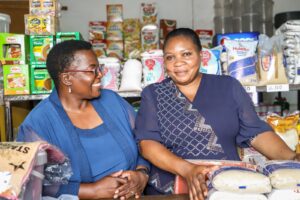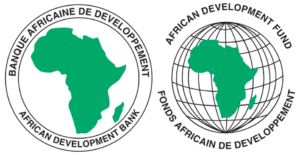This week AFI, the Reserve Bank of Zimbabwe (RBZ), and the Zimbabwe Ministry of Finance and Economic Development hosted a Joint Learning Program on Developing and Implementing Financial Policy and Regulations for Women-Led MSMEs (WMSMEs). The event, held in the resort town of Victoria Falls, provided an opportunity for AFI members from sub-Saharan Africa to learn from the progress made by Zimbabwean policymakers, regulators, and relevant stakeholders in creating an environment for WMSMEs to thrive.
“Women-led MSMEs account for approximately 30 percent of businesses worldwide. Despite their significant contribution to global GDP, they face many more challenges in accessing financial services than their male counterparts,” said Eliki Boletawa, AFI Director of Policy Programs & Implementation.
Contributing an estimated 60% to the country’s GDP and employing over 3.3 million people, Zimbabwe’s MSME sector is a key driver of the economy. The country’s first National Financial Inclusion Strategy (2016-2020) led to the development of policies and regulations specifically tailored to the financial inclusion needs of MSMEs. Today, about 95 percent of MSMEs have access to finance, compared to just 18 percent in 2012.
“The Reserve Bank of Zimbabwe and other financial inclusion stakeholders, recognize the crucial role played by women and MSMEs in our nation’s economic development through employment creation, entrepreneurship development, and poverty alleviation,” explained RBZ Deputy Governor, Dr. Jesimen Tarisai Chipika.
Based on Zimbabwe’s experience and the six pillars identified in AFI’s Policy Framework for Women-Led MSME Access to Finance, the four-day program guided participants in developing and implementing policies and regulations to boost WMSME financial inclusion. Members learned about the importance of collecting sex-disaggregated data; developing skills for women business owners; accepting alternative forms of collateral and credit building; implementing digital financial services for WMSMEs; and encouraging diversity in the business sector.
Participants had an opportunity to visit two women-owned enterprises in Victoria Falls town, where they learned first-hand about the challenges female entrepreneurs face in accessing essential financial resources and services.

Entrepreneur, Sehlile Nkomo welcomes AFI members to her minimarket
“Speaking to women entrepreneurs directly helped us understand how the right financial inclusion policies and regulations can empower targeted segments and improve the livelihoods of individuals, families, and communities. Financial inclusion for WMSMEs is, however, not a one-man game. It is all about collaboration, collaboration, and collaboration,” explained Audrey Hove, who leads the Gender Inclusive Finance workstream in AFI.
This Joint Learning Program was funded by the African Development Bank under the Affirmative Finance Action for Women in Africa (AFAWA) program. AFAWA facilitates improved access to financial services for WMSMEs by helping to create an enabling regulatory ecosystem in Africa.


 About
About
 Online
Online
 Data
Data






















